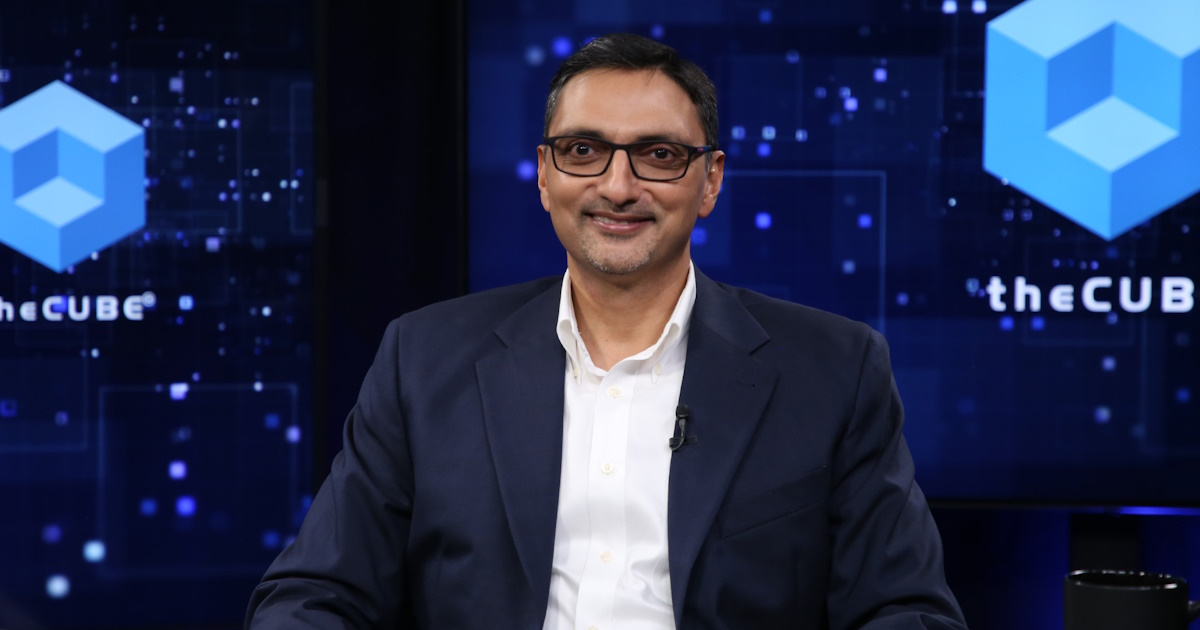 SECURITY
SECURITY
 SECURITY
SECURITY
 SECURITY
SECURITY
In the ever-evolving landscape of the digital age, one concept has emerged as the linchpin of trust and security: digital trust.
As society become increasingly interconnected through online transactions, communication and the internet of things, the need for robust digital trust infrastructure becomes paramount. In a recent CUBE Conversation, Amit Sinha (pictured), chief executive officer of digital trust solutions company DigiCert Inc., shed light on the critical role digital trust plays in today’s world.
“We live in a very connected world,” Sinha said. “When you connect to your bank, how do you know you’re connecting to a legitimate banking site? When, when you are transacting with the bank, how do you make sure that those transactions are secure and then encrypted — nobody’s snooping on it? All of this is foundational and built on digital trust.”
Sinha spoke with industry analyst Lisa Martin, during an exclusive interview on theCUBE, SiliconANGLE Media’s livestreaming studio. They discussed the significance of digital trust, the challenges faced by organizations in maintaining it and the innovative solutions offered by DigiCert to ensure secure and seamless interactions in the rapidly evolving digital ecosystem. (* Disclosure below.)
In a rapidly digitizing world, trust has become the currency that drives online interactions and transactions. With over 20 years in the market, DigiCert is a leading provider of digital trust, serving over 80% of Fortune 500 organizations, according to Sinha.
Digital trust, the foundation that ensures the security of online transactions and interactions, is important in a connected world, where users need confidence that their data is secure, Sinha added.
“Digital trust is sort of foundational infrastructure that allows users, businesses to have the trust and confidence that their online transactions and interactions are secure,” he said.
Sinha and Martin also explored the relationship between zero trust and digital trust. Zero trust relies on the verification of data. Digital trust, on the other hand, is the infrastructure that allows physical identities to be validated and used in subsequent workflows.
DigiCert plays a vital role in enabling digital trust across the hyperscaler environment, Sinha explained. The company works with major cloud providers, including Amazon Web Services Inc. and Microsoft Azure, generating tamper-proof digital identities that businesses leverage for secure cloud workloads and services.
“We did a quick survey at DigiCert and found that 47% of users said they will switch their vendors when their trust is broken,” Sinha said. “So, it’s not just a security issue; it’s also a revenue impacting issue because your customers stop trusting you.”
There are some potential challenges posed by quantum computing in the future, according to Sinha. Quantum computers have the capability for massive parallel processing due to their unique properties, which could potentially disrupt current encryption algorithms.
The impact could be catastrophic if unauthorized individuals gain access to sensitive information. DigiCert is already working on solutions and emphasizes the importance of automated inventory and management of cryptographic assets, Sinha explained.
“It might take a very powerful computer a thousand years to break a current cipher. The same cipher can be broken in a couple of hours on a reasonably large, stable quantum computer,” he said. “That’s because these computers have these spooky properties of superposition. DigiCert is working on a lot of these post quantum computing standards … enabling organizations to discover, to manage and to automate all of these cryptographic assets across their organization.”
Here’s the complete video interview, one of many CUBE Conversations from SiliconANGLE and theCUBE:
(* Disclosure: DigiCert Inc. sponsored this segment of theCUBE. Neither DigiCert nor other sponsors have editorial control over content on theCUBE or SiliconANGLE.)
Support our mission to keep content open and free by engaging with theCUBE community. Join theCUBE’s Alumni Trust Network, where technology leaders connect, share intelligence and create opportunities.
Founded by tech visionaries John Furrier and Dave Vellante, SiliconANGLE Media has built a dynamic ecosystem of industry-leading digital media brands that reach 15+ million elite tech professionals. Our new proprietary theCUBE AI Video Cloud is breaking ground in audience interaction, leveraging theCUBEai.com neural network to help technology companies make data-driven decisions and stay at the forefront of industry conversations.